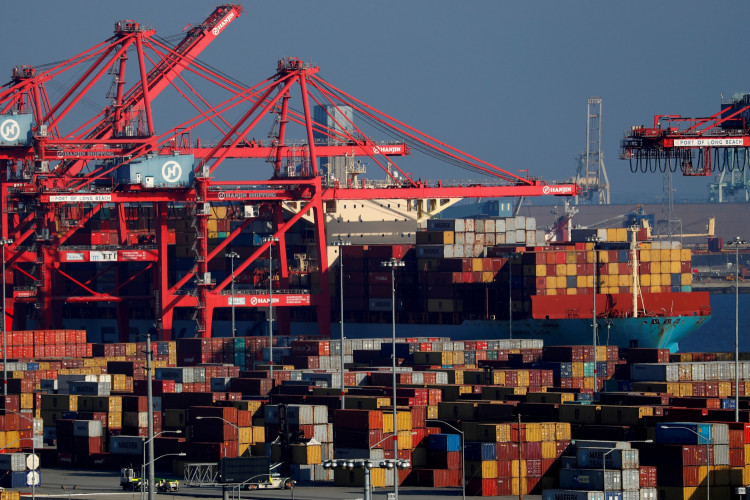The Trump administration announced sweeping new port fees on Chinese-built ships Thursday, escalating trade tensions with Beijing and seeking to revitalize America's diminished shipbuilding sector. The fees, phased in over the next three years, follow a U.S. Trade Representative investigation that concluded China's maritime and shipbuilding practices "burden or restrict U.S. commerce."
The plan, initiated under the Biden administration and finalized by the USTR after public comment, targets Chinese-built and Chinese-operated vessels docking at U.S. ports. The levies are aimed at reversing what officials described as "Chinese dominance" of the global shipping industry, which has left the U.S. shipbuilding sector with less than 1% of the world's output.
"Ships and shipping are vital to American economic security and the free flow of commerce," said Jamieson Greer, U.S. Trade Representative. "The Trump administration's actions will begin to reverse Chinese dominance, address threats to the U.S. supply chain, and send a demand signal for U.S.-built ships."
Under the new schedule, fees on Chinese-linked vessels will start at zero for the first 180 days and then climb annually:
- October 14, 2025: $50 per net ton
- April 17, 2026: $80 per net ton
- April 17, 2027: $110 per net ton
- April 17, 2028: $140 per net ton
Container vessels, ranging from 50,000 to 220,000 tons, could face fees up to $1.8 million per voyage. The charges apply up to five times annually per vessel. A parallel fee structure applies to operators of Chinese-built ships, with container-based charges starting at $120 per container and rising to $250 by 2028.
In a key revision from earlier proposals, fees will now be applied per voyage rather than per port of call, and vessel owners can seek waivers by ordering U.S.-built ships. If the new vessel is not delivered within three years, the waived fees will be retroactively due.
The USTR's final rule exempts certain bulk cargo like coal and grain, along with Great Lakes and Caribbean shipping, U.S. territories, and empty ships entering U.S. ports.
The move follows strong pushback during two days of hearings in March, where over 300 shipping companies, trade groups, and port authorities warned of supply chain disruptions, inflationary pressures, and economic blowback. Chinese-made vessels are projected to represent 98% of global oceangoing trade ships in the coming years.
Fee exemptions were also announced for foreign-built car carriers and liquefied natural gas (LNG) vessels, with the latter facing additional restrictions after a three-year grace period. LNG shipping fees are expected to rise incrementally over 22 years, according to the USTR.






